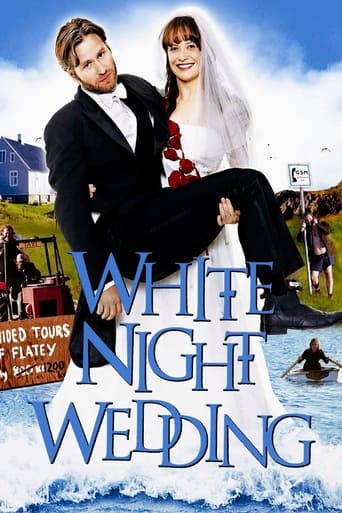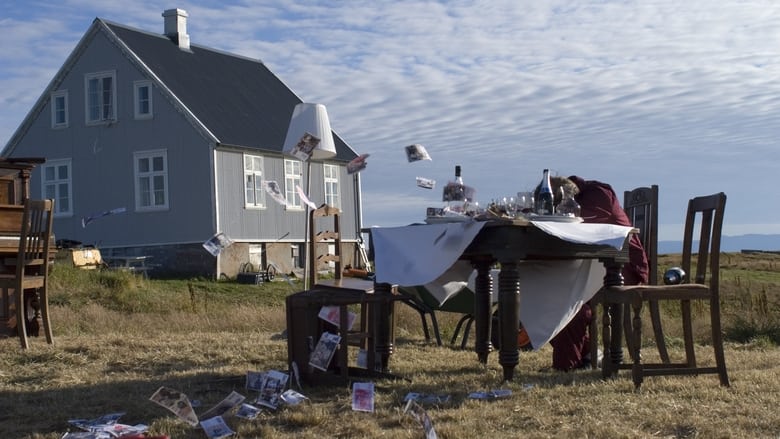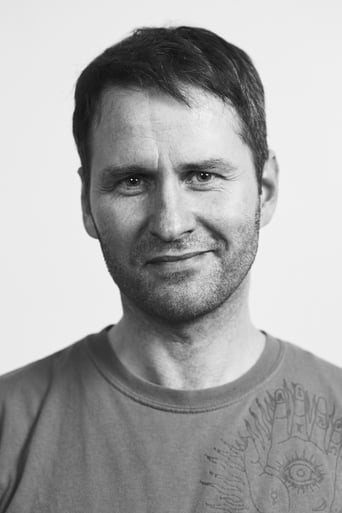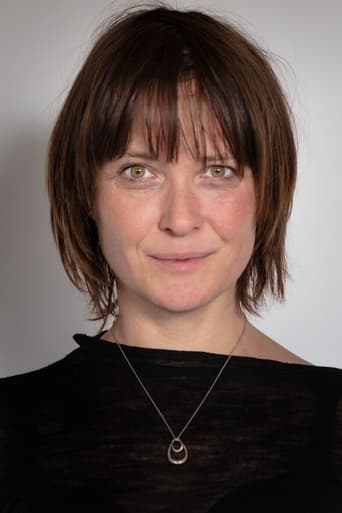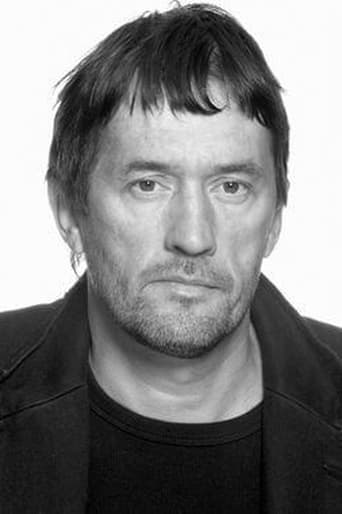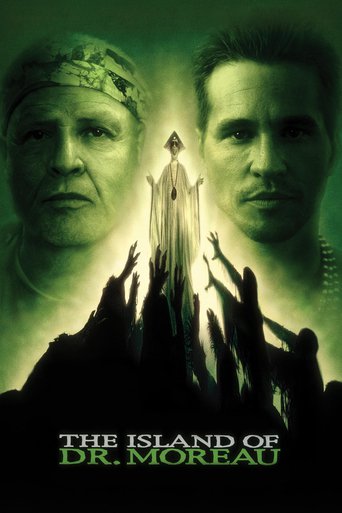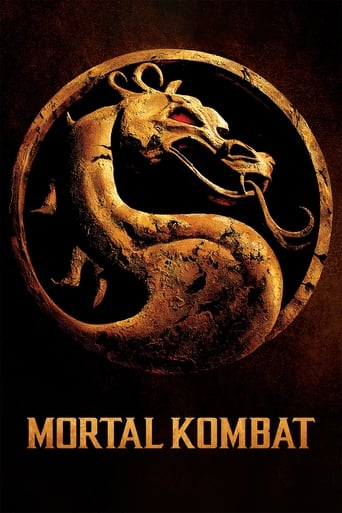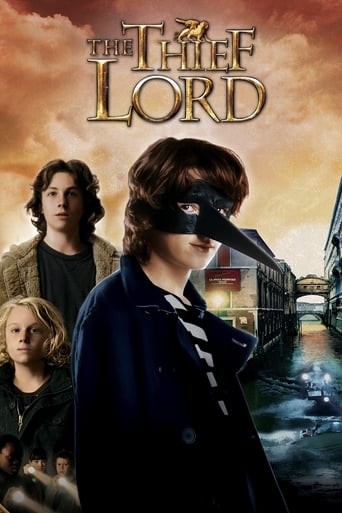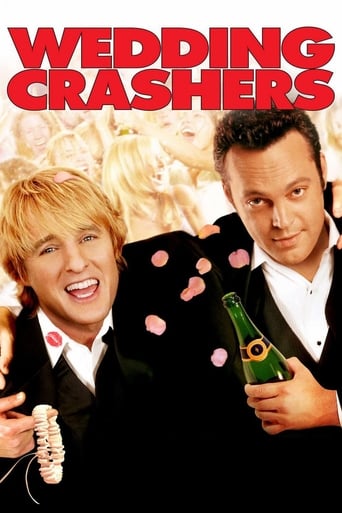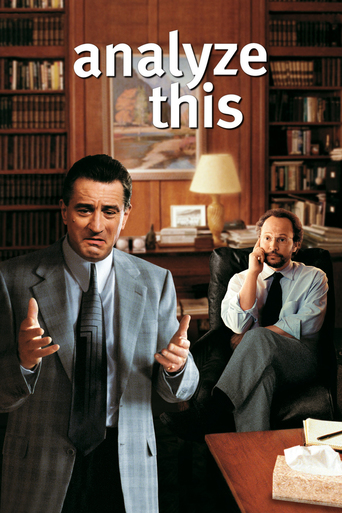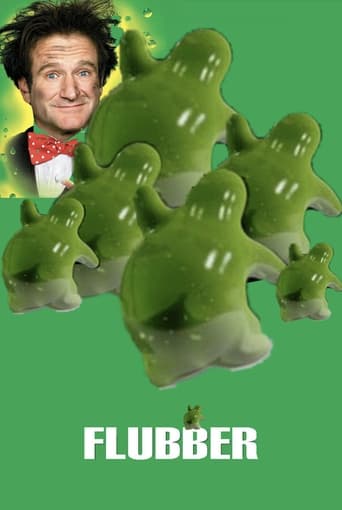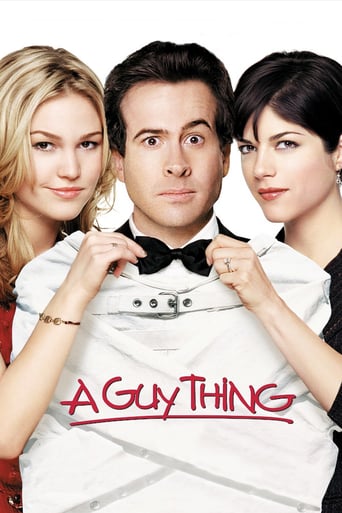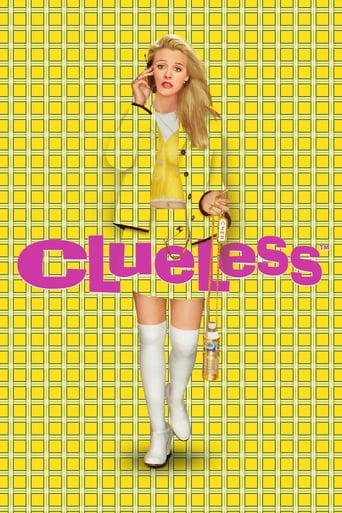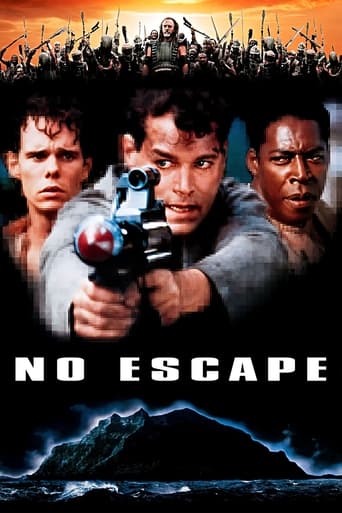White Night Wedding (2008)
Jon, a middle-aged professor is going to get married tomorrow, for the second time, to one of his ex-students half his age. But it's not all roses. First, there's his cranky mother-in-law-to-be who violently opposes the marriage and who demands repayment of Jon's loan before the wedding night. Second, his plans to build a golf course on the little island of Flatey where they live aren't going at all to plan. Third, his extremely drunk best man is on the loose without any shoes and lastly, the continual presence of his emotional first wife is haunting his every move. When the guests start flocking to the island, Jon starts getting cold feet. After a very long night of drinking and thinking, will Jon be able to make it to the church on time?
Watch Trailer
Cast


Similar titles
Reviews
Simply Perfect
Good films always raise compelling questions, whether the format is fiction or documentary fact.
One of the worst ways to make a cult movie is to set out to make a cult movie.
It is an exhilarating, distressing, funny and profound film, with one of the more memorable film scores in years,
White Night Wedding follows the events in the life of Icelandic, ex-professor, Jón on the eve and on the morning of his wedding; his bride is a beautiful, young woman, once his student and 18 years his junior. The mother of his bride-to-be vows to call off the wedding if he will not pay her the funds he promised to ensure her permission to construct a golf course on her property. Meanwhile, throughout his preparations for the ceremony, Jón reflects on fragments of memories from his previous marriage to Anna, an artist who suffered from mental illness. During the course of these two days, he contends with bitter recognitions of his true character and his role in the events that ultimately led to the demise of his first marriage and his first wife's suicide; only the love of his new bride, who maintains a stubborn faith in his goodness, can prevent his attempts at self-destruction. The film skillfully conveys themes of human frailty and redemption, utilizing moments of tragedy and humor. The film begins with the first of many flashbacks Jón has – the shots each yellow, aged hue to show contrast with the present events, which are clear and sharp. He sees Anna.Deeply depressed, due to both her mental condition and the tenuous state of her marriage, Anna had requested that Jón resign from his position as university professor in Reykjavik and move with her to her home, the island of Flatey, hoping they might make a fresh start. The island has only one road and few inhabitants (Wikipedia, "Flatey,Breiðafjörður"). One of the inhabitants is Börkur, who convinces Jón to invest in his plans for a golf course spanning the length of the island. The owners of the guesthouse on the island, a husband and wife,own property on which Börkur hopes to build, so the two men approach them, and Börkur promises his partner will pay them rent for the property until the course is completed. In his business dealings with the couple, Jón encounters their daughter, Þóra, a student from one of his literature classes; their flirtatious interactions are preferable to the ramblings of his manic-depressive wife, and soon, he is spending night after night in Þóra's company. Anna sees the two on a walk and suspects that Jón is falling in love; she begs him to spend his time with her and end his visits to the guesthouse, but he insists he has business to attend to, and she is unable to dissuade him from going.One evening, in the company of the island's priest, whose compassion for Anna's mental condition makes him an attentive neighbor, Anna witnesses Jón making love to Þóra in the grasses just outside their home. Broken by the knowledge that she no longer has her husband's love, Anna rows out to sea in a leaking boat and drowns. These memories flash periodically through Jón's mind, producing deep feelings of guilt and doubt about his upcoming marriage to the young woman for whom he betrayed his wife. His self-hatred grows as he convinces himself of his sole responsibility for his wife's death, and he becomes convinced that his marriage to Þóra will eventually lead her to great unhappiness and, perhaps, a similar fate. He feels he is undeserving of love. These feelings are only reasserted by Þóra's mother, who has waited roughly a year for Jón to pay her the rent she feels she is due; she constantly berates him and her daughter for his negligence, convinced he will never repay (which is entirely true). She threatens to call off the wedding altogether, putting immense pressure on her daughter and unknowingly promising to relieve Jón of the guilt that builds as the wedding approaches. He hopes to escape. His father-in-law, a drunk with disappointed ambitions, comes to Jón's aid, providing him the money necessary to cover the rent his wife demands. However, Jón passes out after a night of drinking with his friends in the yard. When he wakes,the money has been blown away by the wind, though he never seems to reach this realization, possibly hoping he would not have to pay his debt, which would effectively put a stop to the wedding, as his mother-in-law promised. Just before the wedding belatedly begins, Þóra and her father see that Jón is just outside the church in the adjacent cemetery, looking on Anna's grave. The ceremony starts – and abruptly stops, when the groom pulls the bride outdoors to call the wedding off,confessing to her his guilt in Anna's death and attempting to convince her of the impending doom that would await her were they to marry. Distraught, she argues with him; her father soon joins her, and the rest of the congregation files out to watch the drama unfold. He walks to the shore, steps into a leaking canoe, and attempts to end his life as Anna had; but Þóra swims out to him, struggling against the weight of her gown, and desperately assures him that he is good and has her love unconditionally. The priest is carried to where they stand, and with something of exasperation and relief, Jón relents, and the two are married. Jón finds the happiness and redemption in his marriage; but his new wife appears restless, unhappy, and, possibly, unfaithful by the film's conclusion. Human frailty is reaffirmed. Jón represents the human condition – simultaneously fallible and hopeful. He betrays his wife to find redemption in life but finds it instead in his commitment to his new wife. At first, he refuses happiness, punishing himself for the mistakes of his past, his failure to love his wife. What saves him is the love he receives from Þóra. However, it seems he can't escape karma, and at the conclusion of the film, he has, in a sense, filled the role of Anna as the loving spouse, and Þóra appears to be looking for love elsewhere; the irony is both comic and tragic.
In the film White Night Wedding, directed by Icelandic director Baltasar Kormakur, the idea of true happiness and love in marriage is depicted as impossible to attain. Yet the promise of a new beginning seems to always be in the near horizon. The opening scene reveals a marriage rehearsal between a middle-aged and pessimist professor, Jon, and a fairly young and former student to Jon, Thora. It is clear within the first scene that Jon is not thrilled to marry Thora. Jon's unenthusiastic demeanor and narcissistic personality is portrayed throughout the entire movie, which result in loveless marriages. The film frequently flashes back to Jon's previous marriage with his former wife, Anna. The couple moves to the beautiful and isolated town in western Iceland, Flatley, Breioafjorou in hopes of reviving their dwindling marriage. Jon and Anna's marriage had been suffering because Anna had a mental illness. Not many details are given as to how her illness occurred but it is clear that her mental episodes severely impacted Jon's attraction and love for Anna. When the struggling couple moves to Flatley, Jon makes a business deal with, the parents of Thora, Sisi and Larus. The business plan was to open a golf course that stretched across the town in rather inconvenient locations. The golf course is poorly executed and which results in Jon accumulating an insane amount of debt. In the midst of this ridiculous golf course investment, Jon and Anna continue to grow further apart. Jon starts to become annoyed by Anna's creative and insane nature. He then develops an attraction for Thora, which results in a heated affair. Anna finds out about the affair and has a mental breakdown that ultimately puts an end to their life together.Though the end of Jon's previous marriage is tragic and the beginning of his current one seems like a hopeless case, there is a dark comedic element to the film. I think this element is shown in the supporting roles and their pathetic nature. For example, Jon's best man, Borker, is an incredibly oblivious and clueless man who only makes Jon's life more difficult. In fact, it is ironic that Borker is Jon's best man as the golf course was his foolish idea that led to Jon's falling out between Thora's parents. Additionally, I think Jon's friend, Sjonni, brings a comedic element, as he is a complete drunk who spends half the movie trying to find his clothing. I found it rather comedic that a professor would have these kinds of friends and would want an alcoholic as an organist and a loon as a best man. It also showed how little Jon cared about the wedding and the haphazard nature of Jon's relationships outside of his marriage.As I mentioned before there are flashbacks that show Jon's past relationship with Anna intermediately between Jon and Thora's wedding. There were several cinematic techniques that were used to emphasize this contrast. For example, when there were flashbacks the lighting changed to a duller yellowish/sepia tint whereas the present showed colors that were bright and clear. I felt like this contrast emphasized Jon's perspective and how he felt bored and trapped with Anna but had hope for his future with Thora. The director also used a lot of natural light which emphasized Jon's perspective. For example, on the night before Jon's marriage, the sun never goes down and Jon continues to talk about new beginnings. It looks almost as if Jon can live in this timeless capsule where the day never ends nor begins. However, this timeless and hopeful imagery is shortly shattered in the flash forward to Thora and Jon's actual marriage; which ends up being just as boring and loveless as his previous one. Along with contrasts in lighting there is also a contrast between rural and urban setting as the characters move between both sceneries. The city is shown as slightly cramped and congested and the rural setting is isolated, picturesque, and spacious. I feel that these settings impacted Jon's attitude in various ways. For example, when Jon was in the city he appeared level headed with some deeper knowledge about the world, but while in the rural setting Jon's emotions fluctuate frequently and he has no real reason to his actions. Overall I felt like the main character had a narcissistic personality and a stuck up demeanor when approaching his relationships. This aspect of the movie definitely detracted me from enjoying the film. That being said, I did appreciate the comedic effect the movie had despite the dark subjects of adultery, mental illness, and loveless marriages. I would recommend this movie for anyone who enjoys dark humor, outrageous characters, and tragic drama.
"White Night Wedding" is about Jon, a middle-aged professor, who is a day away from marrying his second wife, Thora, who is one of his former students and is about half his age. Jon faces multiple problems on the day before his wedding. First he has to deal with soon-to-be mother-in-law, who vehemently opposes this marriage and demands that Jon pay back his debt to her, otherwise she will cancel the wedding. Secondly, he is constantly confronted by the haunting memory of his first wife, Anna. She seems to loom over him like a dark cloud, causing him to second-guess his decision to marry someone so young. And lastly, the inner turmoil of not only Jon but the other characters as well. One of the main themes in this film is time. Director Baltasar Kormakur uses a very unique technique for his portrayal of time. This film is all set in one day, the day before Jon's wedding to Thora, but there are repeated flashbacks to when Jon and Anna first moved to the island. These flashbacks play a significant role in deciphering Jon's anxieties about his second marriage. Throughout the progression of the film, the viewers learn that Jon and Anna's relationship had reached a level of complacency, so they moved to the island of Flatey in order to start over. However, the change of scenery does not help their relationship and Jon starts to develop feelings for Thora. Either from the guilt from cheating on his wife or the constant reminders of his past marriage, Jon begins to reconsider his marriage to Thora. The flashbacks offer the viewer a glimpse into Jon's mind as audience members begin to empathize and become as apprehensive as Jon about the wedding, which is only a few hours away.Love and relationships are very obvious themes in this film. There are three separate relationships being portrayed in this film; Jon's marriage to Anna, as represented in the flashbacks, as well as his engagement to Thora, which is happening in the present, Thora's parent's dysfunctional marriage, and the forbidden relationship between Börkur and Matthildur. The film focuses on primarily on Jon's relationships so I will focus on the other two. Thora's parents have such an odd marriage that it is almost comical. Thora's mom is basically a bully who pushes everyone around in order to get her way. On the off chance that she loses an argument, she reverts to acting like a child by either shouting or crying so that the other person will give in. The audience assumes that Thora's father puts up with his deranged wife because he loves her, yet it is later revealed that that was not always the case, and now Thora believes that her father is too much of a coward to break off his marriage after so many years.The relationship between Börkur and Matthildur is even more strange, mostly because the two of them are the outsiders of the community. Börkur is a greasy man as well as a type of entrepreneur who is helping Jon build a golf course on the island, whereas Matthildur is a superstitious, awkward woman who spends her time and money playing the lottery. On the most part, they are forbidden to be together because Matthildur's mother deems it as such.Lastly, the themes of dreams and aspirations are constantly portrayed on-screen. Anna just wants to create art and have Jon still love her and find her interesting. Thora wants to be with Jon no matter what anyone else says. Thora's mother wants Jon to pay his debt and leave her daughter alone, whereas Thora's father gave up his dream of being an opera singer to live on an island and run a small hotel with his wife. Unlike the other characters, Jon's ambitions seem to change as the film progresses. First, it seems as if he wants to be with Thora, but then he is haunted by the memories of Anna. Then it seems as if Jon wants out of his engagement in order to go back to his old life, but that is impossible since Anna is dead. It is difficult to say whether Jon finds happiness or not. At the end of the film he goes back to teaching, yet his personal life with Thora seems to mirror the complacency he had with Anna. Will things turn out the same, or will Jon get his 'happily ever after'? The viewer never knows.The themes of time, love, and dreams are all present in "White Night Wedding". The theme of time is present not only in the two timelines that are being presented simultaneously of Jon's relationships with Anna and Thora, but also in the fact that time is quickly ticking away as the wedding draws ever more near. The theme of love is present not only between the main characters but also between some of the minor characters as well. And finally, the viewers learn of each character's own hopes and aspirations yet they do not know whether or not they are seen to fruition.
This Icelandic comedy takes part on an island outside the northwest coast. They have a church, a priest, German tourists, a grocery, a white trasher who wants to start a golf business and most of all...they've got this middle-aged philosophy teacher, who wants to start a new life with his mentally weak wife.But he meets this young girl and the circus is on. Or the chaos. The first half of this film is full of flashbacks. The content is both very tragical and most comical, but in this case, they don't match.A good try perhaps, but not enough of it to make this a good movie. And the flashback technique could have been used with some moderation.

